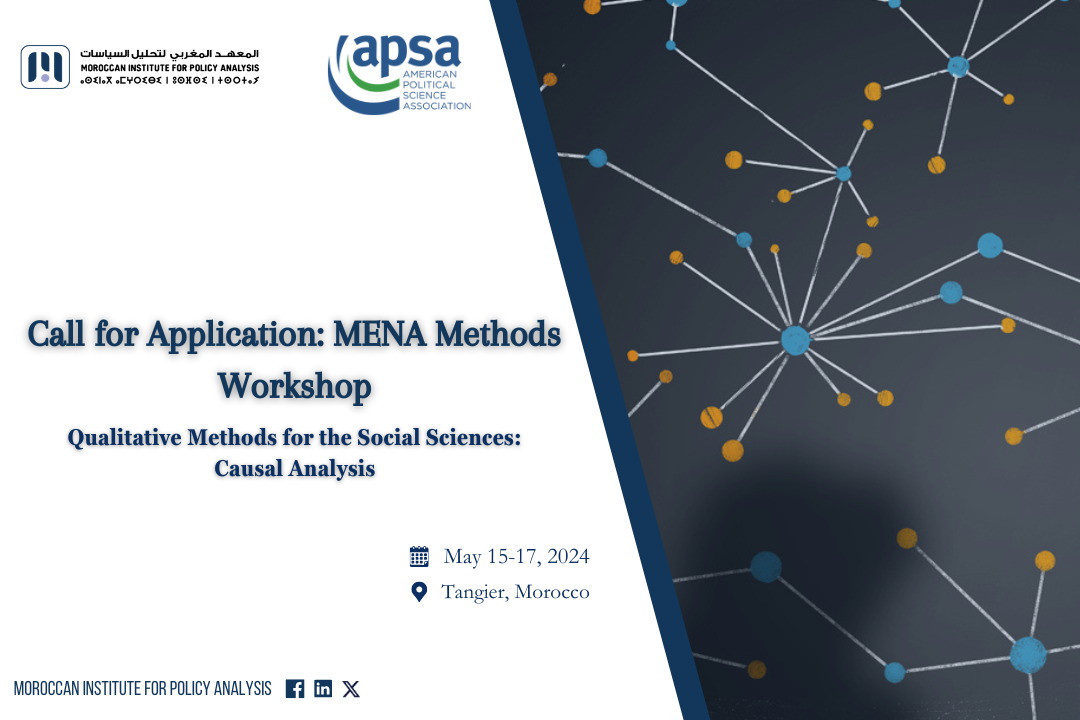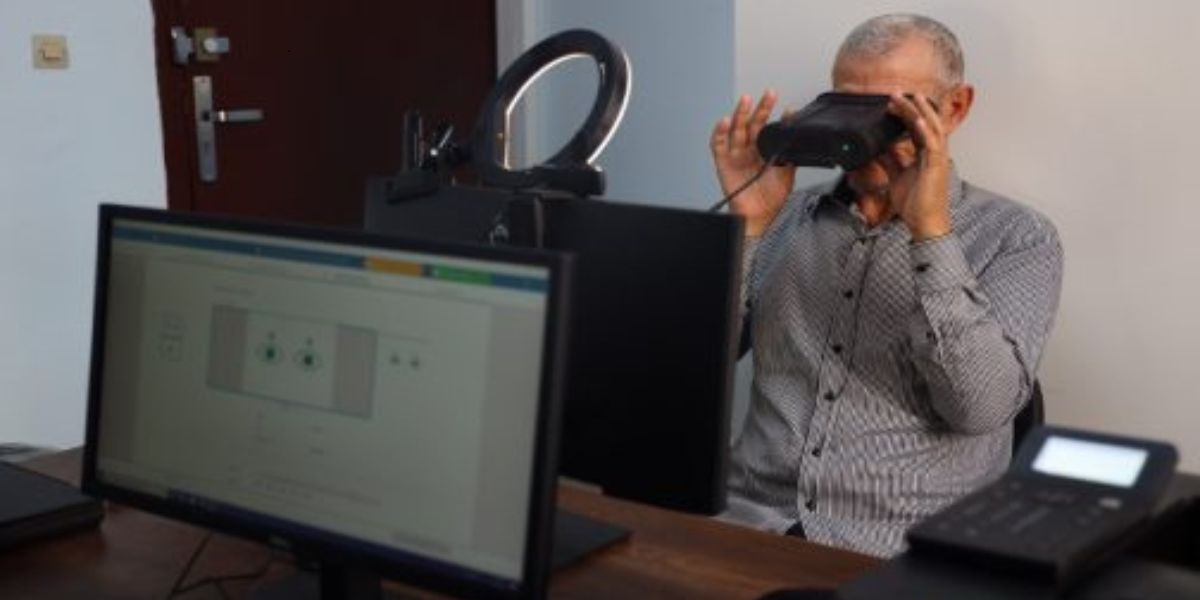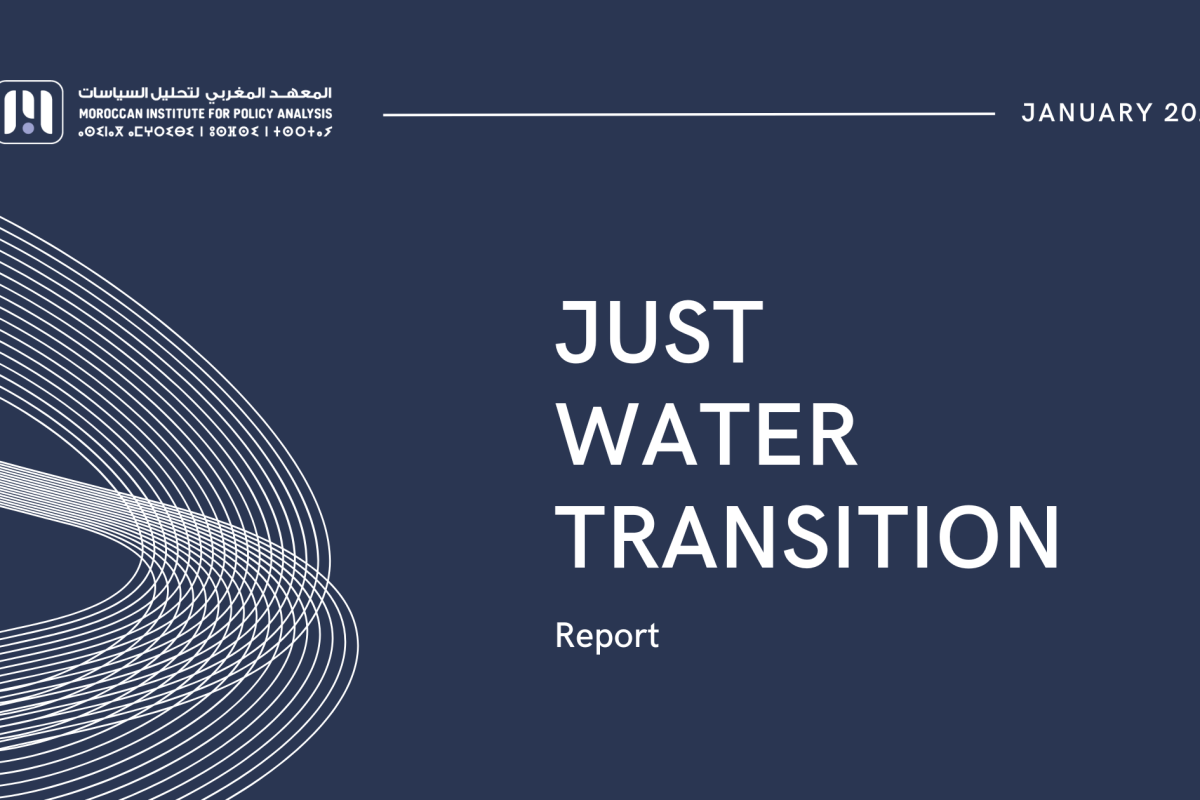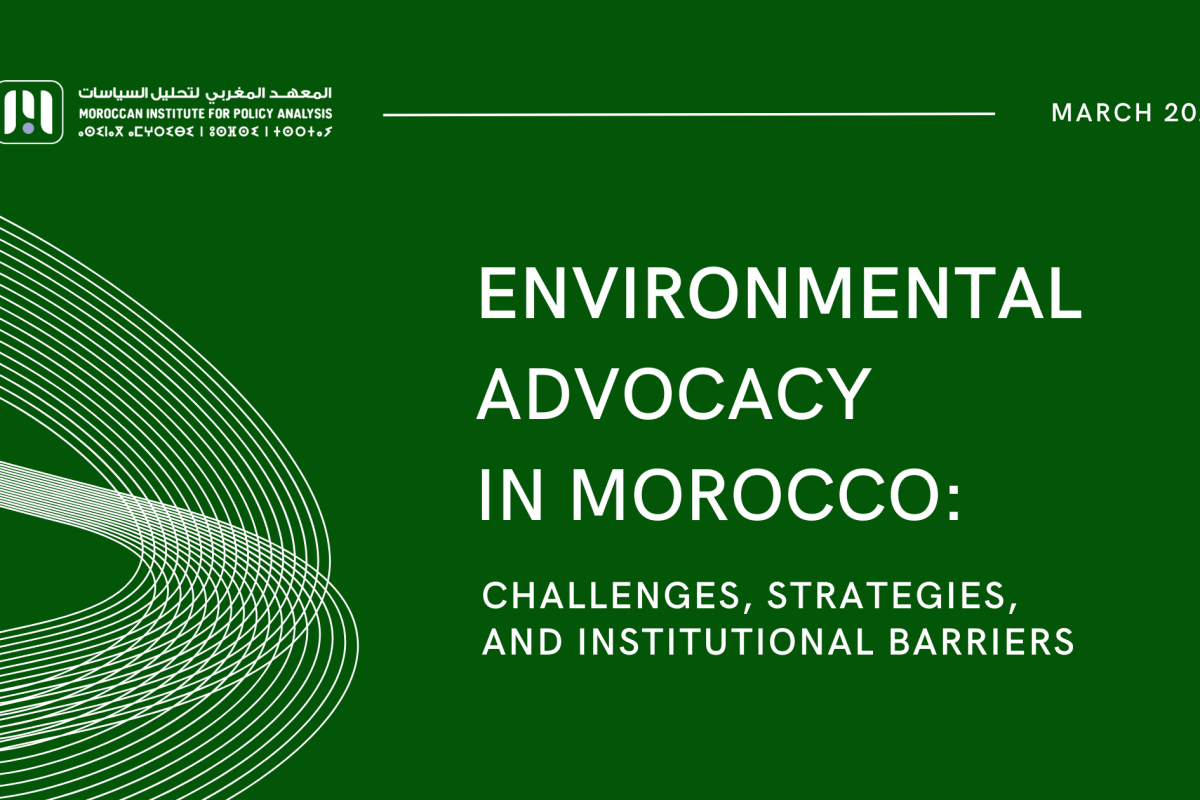CALL FOR APPLICATIONS: MENA METHODS WORKSHOP
Qualitative Methods for the Social Sciences: Causal Analysis
May 15-17, 2024 – Tangier, Morocco
The American Political Science Association (APSA) is pleased to announce a Call for Applications from early-career scholars who would like to participate in a qualitative methods training workshop for scholars from the Middle East and North Africa (MENA). This program will provide intermediate-level training on understanding and applying methods of qualitative analysis in social science research. Organized in partnership with the Tangier American Legation Museum (TALIM) and the Moroccan Institute for Policy Analysis (MIPA), the in-person workshop will be held from May 15-17 in Tangier at TALIM. Organizers will cover participation costs, including travel, lodging, and materials, for up to 20 qualified applicants. Following their full participation in the program, fellows will receive a one-year membership to APSA. The deadline for applications is Sunday, March 3, 2024.
The workshop is part of a multi-year effort to support political science research among early-career scholars in the MENA region, and to strengthen research networks linking Arab scholars with their colleagues overseas. More information on APSA’s MENA programming can be found online at http://web.apsanet.org/mena/.
Eligible Participants
Applications are open to advanced graduate students (MA & PhD students), post-doctoral fellows, and other early-career scholars (those who received their PhDs within the past 5 years) in political science and other social science disciplines who are citizens of countries in the MENA region. Priority will be given to scholars currently based at universities or research institutes in the region.Applicants must already have some basic training in qualitative data analysis but are not expected to hold advanced skills in specific qualitative techniques. Scholars are encouraged to apply with a research project in progress that they will discuss at the workshop. Professional fluency in English is required.
Program Content
The 3-day workshop will be led by Drs. Jason Brownlee (University of Texas at Austin), Matt Buehler (University of Tennessee), and Zaynab El Bernoussi (NYU Abu Dhabi). The program aims to reinforce participants’ foundational knowledge of qualitative research methods, and provide training on some of the specific tools of causal analysis used in high-quality qualitative research. Co-leaders will guide participants through a series of sessions that combine theory with practical application, and engage participants in exercises that allow them to apply learned concepts to their current research projects. In preparation for the sessions, invited scholars will be expected to review a set of readings/resources, accessible several weeks before the program. Session topics will be finalized by instructors based on the selected cohort and may include some (but not all) of the following:
- Overview of Qualitative Methods: Basics of scientific method & qualitative research; formulating research questions and hypothesis development; qualitative vs. quantitative research; case selection strategies and logic.
- Practical Exercises in Qualitative Analysis: Intro to process tracing techniques; creating and analyzing causal diagrams; comparative historical analysis; qualitative comparative analysis.
- Fieldwork and Data Collection: Qualitative interviewing techniques (structured vs. semi-structured interviews, snow-ball sampling, etc.); political ethnography and participant-observation methods; fieldwork/data collection ethics & best practices.
Subsequent Engagements: Following their participation in the workshop, scholars will be encouraged to apply for the MENA Mentoring Initiative. Scholars from the workshop will be prioritized for being paired with a mentor for a period of 3-6 months to advance a specific scholarly output (journal article, book chapter, book project, dataset, etc.).
How to Apply
Interested applicants should review the eligibility requirements and program expectations on the APSA website, then follow the web link to the online Application Form. Completed applications, including all necessary supporting documents (in PDF or Word Format), must be submitted by Sunday, March 3, 2024. Selected fellows will be contacted by the end of March.
Applications must be in English and include:
- The completed online Application Form.
- A detailed recent Curriculum Vitae/resume.
- A one-page cover letter describing, in detail, your motivation to attend the methods program, highlighting which qualitative methods topics you are interested in, and how this training will benefit your research plans and/or professional development. Please be as specific as possible.
- One letter of reference on official letterhead and scanned as an electronic file. If you are a graduate student, the letter should be from your dissertation/academic supervisor. If you are a postdoctoral fellow, the letter can come from a former dissertation supervisor, a colleague at your home institution, a university official, or an employer.
Supporting documents can be uploaded with the application materials or sent directly to menaworkshops@apsanet.org. For more information and questions, check our website or contact delissa@apsanet.org; please do not contact the co-leaders directly.

MIPA Institute
MIPA is a non-profit independent research institution based in Rabat, Morocco. Founded by a group of transdisciplinary researchers, MIPA’s mission is to produce systematic and in-depth analysis of relevant policy issues that lead to new and innovative ideas for solving some of the most pressing issues relating to democracy.


